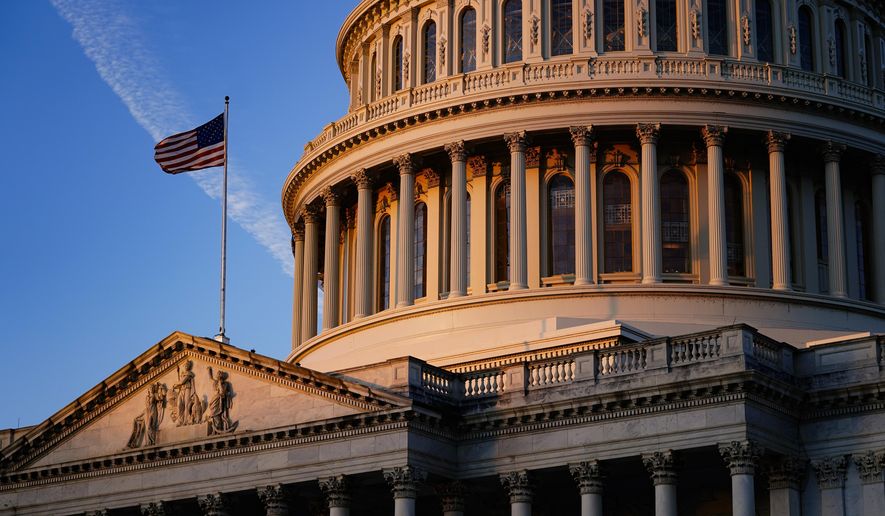Congressional Democrats are scrambling to find an easy solution to the looming deadline to raise the U.S. debt limit, even eyeing to carve out a filibuster exemption on the topic.
An aide close to Democratic leadership told The Washington Times the carve-out would allow the Senate to address the debt ceiling at a later date by a simple majority of 51-votes, rather than the customary 60-vote threshold needed to beat a filibuster. Democrats hope to include the carveout as an amendment to the National Defense Authorization Act (NDAA), a must-pass annual defense policy bill.
“This is a way to ensure the full faith and credit of the U.S. is preserved,” said the aide, who requested anonymity to discuss legislative strategy. “Nothing is final yet, but there is a realization on this side of the aisle that little skirmishes over the debt limit every few months aren’t good for the economy.”
Senate Armed Services Committee Chairman Jack Reed, a Rhode Island Democrat who is overseeing the NDAA, said he was not briefed on the carveout proposal but would be comfortable with going along.
“I think if it’s a way to get the debt ceiling passed, absolutely,” said Mr. Reed. “You’ve got to get the debt ceiling raised, you can’t avoid it.”
It is doubtful Republicans will sign onto the deal, especially if Democrats opt to make the carveout part of the Pentagon policy. For the defense bill to pass, at least 10 GOP senators will have to cross the aisle.
“That could be a very dangerous approach because most of us that are Republican have indicated that Democrats are going to have to do the [debt-ceiling] on their own,” said Sen. Mike Rounds, a South Dakota Republican. “If they were to tie the debt ceiling to the NDAA, I think it would simply just delay the passage of the NDAA.”
Mr. Rounds, who serves on the Armed Services Committee, added that any attempt to hijack the NDAA to raise the debt limit was likely “dead on arrival.”
Other Republicans lambast the notion of a one-time filibuster carveout for the debt limit as a political ploy by Democrats. They said the deal is not serious and is only meant to pressure GOP senators to agree to provide the votes for a bipartisan debt limit hike.
Republicans have insisted that Democrats, who control both chambers of Congress and the White House and are backing massive new spending, should unilaterally raise the debt limit.
Talk of a filibuster carveout comes as Treasury Secretary Janet Yellen has warned that Congress needs to raise the debt ceiling by Dec. 15 to avert default.
The debt limit is currently set at about $28.9 trillion and the Treasury is using “extraordinary measures” to reshuffle cash and keep the government solvent. Congress does not raise the debt ceiling in time, the Treasury will be forced to decide which bills get paid and which don’t get paid.
Senate Majority Leader Charles E. Schumer has been negotiating for weeks with his GOP counterpart, Minority Leader Mitch McConnell of Kentucky.
Mr. McConnell, who helped provide GOP votes for a short-term debt ceiling hike earlier this year, has ruled out doing so again. Instead, he argued that Democrats should deal with the topic on their own using reconciliation.
The process, which Democrats are using to move President Biden’s roughly $1.75 trillion social welfare and climate bill, allows tax and spending measures to pass the Senate via simple majority.
Mr. McConnell has offered to expedite any attempts by Democrats to use reconciliation to deal with the debt limit. Under the proposal, which is the brainchild of Republican Sen. Pat Toomey of Pennsylvania, Republicans would acquiesce to a quick reconciliation vote by not slowing down the process with parliamentary roadblocks.
Mr. Toomey said the GOP’s sole responsibility would be to “not drag it out.”
• Haris Alic can be reached at halic@washingtontimes.com.




Please read our comment policy before commenting.